Bottle Ethics
Bottle Ethics by Bob Libbey
How often has a seemingly normal and honest person changed from Dr. Jekyll to Mr. Hyde when a rare bottle was at stake? Shouldn’t we all strive to be the same conscientious person we always are even when we are involved in a bottle transaction? This article is an attempt to shed light on some of the specific ethical dilemmas that can occur when we are dealing with rare (and not so rare) bottles. It is hoped that this can open some discussion as to what is fair, reasonable, and ethical behavior. Maybe just thinking about some of these issues ahead of time can save you stress and disagreements down the road. I have included examples of scenarios with multiple choice answers. After the questions, I offer suggested solutions. I hope you will find the article entertaining.
Before I begin, I would like to suggest that the golden rule applies to bottles as well as anywhere else. You should deal with others in a bottle transaction as you would want to be treated yourself. That is; with respect, dignity, and honesty. Some of the questions and dilemmas presented will seem simple and easily resolved. Others are more difficult…
- You buy a five dollar bottle with a ten dollar bill. The seller gives you a twenty dollar bill in change. You?
- Do the math and count your winnings!
- Look around for more items to buy with big bills.
- Tell the person they gave you the wrong change.
Okay. I started a little easy. Obviously, the correct answer is ‘c’. You give the person their twenty back and get the correct change. They’ll appreciate your honesty and probably think highly of you. You’ll also sleep better. Here’s a harder one…
- You and your digging partner find one (but only one) unbelievably phenomenal bottle. This is a bottle you’ve both always wanted. You?
- Tell your digging partner that it’s yours. If (s)he can’t deal with it, (s)he will not be your digging partner anymore.
- Split the bottle.
- Let your shovel accidentally slip into the back of your digging partner’s head. This should give you (at the least) a running start.
The correct answer is ‘b’. You should “split” the bottle. This is meant in a figurative way. With any luck, you do not actually split the glass in two. This is a very tough dilemma that is best solved with advance planning. One way to do that is to discuss what will happen with your digging partner before you start to dig. You could set up a system where one person gets first pick on a certain type of bottle. For example, if one person collects bitters and whiskeys, they could get the first pick if the rare bottle is one of those. Conversely, the other person who collects beers and sodas gets the first pick if it’s one of those. Subsequently, the person that didn’t get the rare find gets half the value of the phenomenal bottle from their digging partner. This can be accomplished by giving the other digger all of bottles until things even out value-wise or by giving them half of the bottle’s value in glass or cash.
However, if you cannot decide who gets the bottle, you may want to just sell it outright. That way, you can split the proceeds evenly. This works as long as you both can part with it. If neither can part with it, and neither will let the other buy out their portion, I suggest a time-share. Seriously. Each person gets the bottle for a period of time and then turns it over to the other. The intervals should be short at first, maybe a week, but then lengthen over time. If this option is chosen, be careful transporting that bottle. Also, consider going out again together to find another one to simplify your life.
- An extremely rare, one of a kind bottle, identifiable by distinctive markings, goes missing from a major collector. This is a bottle you’ve always wanted. An unscrupulous person tells you that you can have it for enough cash. One look confirms that it is the very example that has gone missing. You?
- Ask how much cash you are talking about.
- Tell him that it would be wrong for you to buy stolen goods.
- Contact the authorities and the rightful owner.
While this bottle might be one you’ve always wanted, you cannot get it like this. It is illegal and wrong. Don’t be tempted. Answer ‘b’ has problems as well. It alerts this unscrupulous person that you are onto their scheme. We’ve established that the person has low character but we don’t know how they will react against you. They may be angry or violent. They may also better cover the evidence against them if they know that people are aware of their actions. I think answer ‘c’ is better. By contacting the police and the original owner, you stand the best chance of getting the bottle back into the hands of the rightful owner and perhaps getting justice for the unscrupulous criminal.
- You have promised to hold a bottle for someone, but an offer too good to refuse comes up. You?
- Tell the new person that you must contact the person that you were holding it for (even if it makes you lose the deal).
- Take the offer. It’s too good to refuse!
- Tell the new person that you regret that you cannot take their offer.
The key to this question is that you promised to hold the bottle for another person. You gave your word, your bond, your oath. (Am I getting through?) By making this promise, you have guaranteed that you will not do exactly what you are now tempted to do. This means that you cannot just take the offer. However, the other two answers are better. Ideally, you would keep the bottle for the person to whom you promised it. That would be honoring your promise. As a practical matter, the least you should do is contact the original person and give them the chance to match the offer. They may want to do so, or they may give you permission to accept the generous new offer. This way, you’ve at least given the person a choice. However, if you’ve already agreed on a lower price, the original person that you were holding the bottle for is likely to (properly) feel extorted. You should consider honoring the original deal short of other unusual extenuating circumstances. (One example might be that the original person misrepresented the value to get you to agree to an unfairly lowered price).
- Somebody asks you for an honest appraisal of the monetary value of a bottle. You;
- Intentionally downplay its’ worth in order to buy it cheaper.
- Tell them what you really think the fair market value is.
- Tell them that value is subjective and give them a lowball offer.
The main point of this question is that you were asked for an honest appraisal, not a lowball offer. To give an honest answer, you cannot misrepresent the value. Additionally, the person has asked you to put on a different hat. Not a buyer’s cap, but an appraiser’s one. By asking for an appraisal, the person is asking you to draw a line between your own self-interest in owning the bottle, and their interest in knowing what it is worth. If you think that telling them the real value will destroy your chances of buying the bottle, tell the person that you cannot give them an appraisal (because you have a conflict of interest).
Consider this when telling someone the value. If this person repeats your appraisal to another serious collector, how does it reflect on you? Does the other person laugh and tell them that it’s worth ten times that much? If so, you have not offered the fair market value. If you insist on bidding on the bottle, be sure to appraise (at the least) a range of prices that will include the actual fair market value. For example, if you think the bottle is worth one hundred dollars (but you are too cheap to pay that much), you could say that the bottle is worth somewhere between fifty to one hundred and fifty depending on how things go at auction. Then, if you offer them fifty, at least you haven’t lied to them.
- You see a bottle that you don’t even want at a rummage sale way under-priced. You?
- Buy it and re-sell it for the profit.
- Tell the person that’s selling it that it’s worth a ton more.
- Call somebody that might want it on your cell phone and tell them to come over.
God bless America! The answer is ‘a’. This is where you can capitalize on your knowledge and experience if you want. You are paying the person exactly what they asked for. You know it’s worth more and you can reap the benefit with a clean conscience. Answers ‘b’ and ‘c’ are both very nice things to do but I do not think that they are ethically required.
As a small side note, I do find it in bad taste to try to bargain the price down when you know that you are going to be making out nicely on it.
- You drop and damage a bottle from somebody’s table when they weren’t looking. You?
- Run.
- Make a comment about how much the tables wobble in this place.
- Pick up the bottle and pay for it.
Another easy question. You should pay for the bottle that you damaged. If you are not willing to pay for things that you break, take your mother’s advice from childhood and, “Don’t touch anything.” Collecting is about enjoying people’s bottles. People love to touch and hold them. So, don’t wreck it for everyone by forcing sellers to put up “Don’t touch” signs.
Additionally, you might have noticed that ‘run’ has not yet been the correct answer.
- You cannot get digging permission in a great old lot despite your best efforts. You?
- Forget about it and dig elsewhere.
- Spy on the homeowners to determine their daily habits. This should help you find a digging time when they are not home.
- Get imitation electric company uniforms and tell them that you are digging underground cables.
The answer is ‘a’. The other two answers, ‘stalking’ and ‘trespassing’ both sound criminal. This is not your property. Can you imagine someone digging up your yard without your permission? Outrageous. If you really want another chance, wait for the for-sale sign to go up. When the new owners move in, you can try again. Until then, dig elsewhere.
- You can take a chipped bottle and make it look better (and more valuable) by strategically placing a price tag. You?
- Hide the damage and cash in.
- Put the price tag in a different spot that does not cover the damage.
- Place the tag over the damage but tell people that you did it.
Never ever conceal damage. The buyer will find the damage soon enough and they will (rightfully) feel cheated. Telling people about the damage will help, but they will still think that you were trying to pull something over. Don’t hide damage ever. In fact, if there is latent damage, you should tell a buyer up front. It’s what you would want to know if you were buying.
- Conversely, you buy a bottle on ebay that has understated or mis-represented damage. You?
- Give the person a negative feedback right away.
- Discuss it with the seller.
- Demand a refund including the shipping fees.
You should never give negative feedback without discussing things with the seller first. They might make things right. You must decide for yourself in this scenario if you still want the bottle despite the damage. If the answer is “Yes” then ask yourself if it was worth the price you paid. If the answer is still “Yes”, then I think that you keep the bottle, post positive feedback, and politely inform the seller that they should consider being more specific about the damage on a bottle in the future because it can affect the value. If you feel that you would not have paid this much for the bottle anymore, contact the seller and ask for either compensation for the mis-representation or a refund. Save the negative feedback for a seller who is not cooperative and will not remedy the situation.
- A friend tells you he can turn any bottle dark red through a new process where he works. You try it, giving him a common bottle to see what happens. It comes back in a color that was never originally manufactured. You’re thinking this bottle might go crazy on ebay. You?
- Post a photo in the listing but don’t say anything about how it got that color.
- Mention in the listing that sunlight can naturally turn bottles certain colors such as purple, red, and amethyst.
- Mention in the listing that the color of the bottle was modified from the original.
Any modification that you know of must be listed up front every time. Any repair, rework, remold, or change should be mentioned. If people still want to bid on it, at least they know what they are getting.
As a side note, there is some debate in the bottle community as to whether or not these bottles are damaged or enhanced. Any irreversible change should be carefully considered. If you are against modifying the bottles, do not support those who do it by purchasing their wares.
- You think you can convince a novice collector that a valuable and rare bottle (that you really want) is not that good. You?
- Warn them that they should figure out the value of what they’ve got before they try to sell it.
- Take advantage of this unique opportunity to get the bottle on the cheap.
- Let them learn their own lessons about value the hard way.
You should always treat others, even novice collectors, with respect. Tell them to make sure of what they’ve got before they try to sell it. If you do try to buy it, be fair in your offer. It’s how you would want to be treated.
- A certain person has a great source that comes up with a ton of old glass. You find out the name of the source. You also discover that the current buyer is paying a fair price. Nonetheless, you want the source to come to you. You think that by telling the source that the other collector is ripping them off, the source might come to you. You?
- Avoid the source. The other collector found them first.
- Try to convince the source that the collector is cheating them.
- Tell the source to give you a chance to bid on the next great bottle that turns up.
Answer 'b' is out. You know the story about gossip. It damages other people and it is almost impossible to take back or repair. Don't lie about others. If you want to avoid the source as a courtesy to the other collector, that is a nice thing to do. However, I do not think that you are ethically required to do so. It is fair to ask to bid on the bottles next time. The other collector is not going to like it and in fact, may be angry. Ultimately, the source would decide who gets the bottles and for what price. While the other collector might not want the competition, the source will be paid fairly and you may have a chance at some rare bottles.
- A total beginner shows you an antique, but relatively common, bottle that they just found. Excitedly, they ask you your opinion of it. You?
- Tell them to get lost. It's a dime a dozen.
- Call them 'Newby' and laugh.
- Tell them that it's old and collectable but not that rare.
This is more a question of etiquette than ethics. However, it is nice to be nice to the nice. Remember when you found your first old bottles? You didn't know how good they were. Why not encourage new collectors to get out and carry the banner high? They'll appreciate it and you may have made a new collecting friend.
- You think that it's highway robbery that a show charges a table fee for early admission. You?
- Sneak in when no one is looking.
- Pay the early entrance fee.
- Wait until the regular public gets in at the show price.
The answer is either 'b' or 'c'. Either it's worth extra money to you to get one of the first cracks at the bottles or it's not. If you decide that it is, pay up partner. If not, wait in line. Answer 'a' is just another form of theft.
- In one lucky spot, you find a whole bunch of examples of the same rare bottle. If word gets out, you fear that the bottle will be considered less rare and hence, less valuable. You?
- Tell potential buyers that this is probably their only shot at such a rare bottle.
- Admit up front in any negotiation that you found a lot of them.
- Admit that you found a whole bunch when specifically asked.
Answer 'a' is outright lying to a potential buyer. Sooner or later they are going to find out you lied and they are going to feel justly hoodwinked and angry. The other two answers are tougher. While it isn't a bad thing to be honest with a buyer, I don't think that you automatically have to tell a buyer everything up front. For example, I think it is okay to list the bottle on eBay with a description without any commentary about its rarity. Remember though, that if you keep listing them, it's going to become apparent to serious collectors that the bottle is not as rare as it once was.
Another thing to consider is that to everyone else, except you, the bottle still has the same rarity. Unless you flood the market, they will remain rare. My advice is to sell them selectively and gradually. Most serious collectors that don’t have the bottle are going to want it even if you are honest. You can help safeguard the value by assuring them that you will not flood the market and that you are giving them a crude or nice example. They’ll appreciate both your honesty, and that they ended up with one of the best examples.
- You are going to trade a bottle with another collector. You honestly think that your bottle has better condition but that theirs is older and more rare. You?
- Downplay the rarity and age of their bottle.
- Explain how much better your bottle is because condition is everything.
- Give your honest assessment of the relative condition, age, and value up front.
Another question of etiquette over ethics. Can't we all skip the step where we pooh pooh the other collector's bottles while singing the praise of our own? Obviously, we want the bottle they are trading, or we wouldn't be trading for it. Don't insult them by telling them that you are doing them a favor by taking it off their hands. Try this as an example. What you have is older and more rare but mine has better condition. How about an even exchange? It's at least a starting point for negotiation that is not insulting.
Well. That's about all of the ethical situations I can think of right now. If you'd like the pope of pontil to address your specific ethical dilemma, feel free to ask questions in the bottle talk forum. I think it would be wonderful to have open, honest, and frank discussions as to what we collectors think is appropriate behavior towards others. You can also open up any topic I discussed in this article in the forum. Feel free to disagree where you think it is needed. Remember to deal with others as you would want to be treated yourself and you will generally be doing the right thing. God bless America. God bless bottle collectors. Amen
Since posting the article, I have had the chance to discuss it with a few collectors. One really great point that came up is that the bottle collecting community is quite small. If you cheat one collector, word will get around and you may actually be harming your reputation in the long run. Thus, your perceived short term gain may be a long term loss when others mis-trust you in the future.
Another comment came up about buying bottles. I suggested always paying a fair price. Some collectors consider themselves 'dealers' and they believe that in order to make a profit on a bottle, they will typically pay someone only a fraction of the actual fair market price at auction. In business terms, they are buying it wholesale rather than retail. If you are offering someone a dealer's price, I think you should inform them of that fact.
Another comment came up about promises to sell someone a bottle. Legally, if you want a promise to be binding, you can exchange anything of value. For example, if someone says, "I'll sell you this bottle", you can hand them a buck as a down payment and you have a contract (as long as you agree to terms). Not a bad investment. A proper contract should be written but that is getting beyond the scope of this article. Once again, if you promise someone a bottle, you should stick to your word or the word might get out about you!








